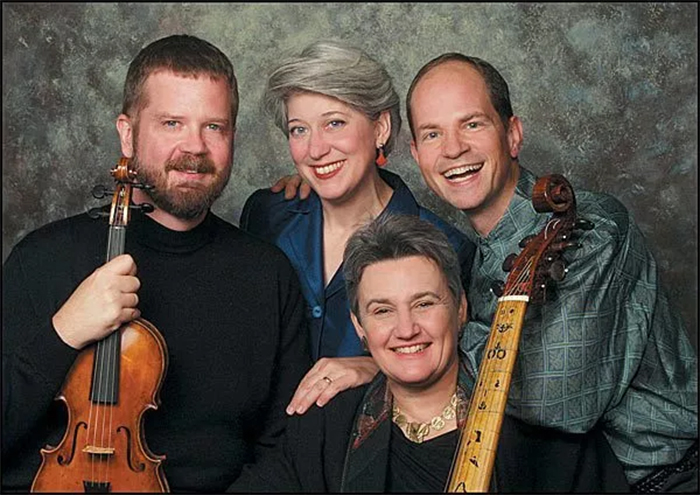Dickinson College Hosts Performance by The Newberry Consort

Artistic residency takes multiarts approach to music, cultural history
What did the Middle Ages sound like? Audience members will experience music, images and language of that evocative era when The Newberry Consort presents a multi-arts, multimedia production that's informed by rigorous historical research.
Specializing in music from the 13th to 18th centuries, the Newberry Consort is one of the world's premier early-music ensembles. It will present Forbidden Love: The Passion of Héloïse and Abélard on Oct. 27 at 7 p.m. in Rubendall Recital Hall, Weiss Center for the Arts.
Forbidden Love brings the love story of 12th-century scholar Pierre Abélard and his student, Héloïse D’Argenteuil, to vivid life through live vocal and instrumental music, including works by medieval composers Guillaume de Machaut, Baude Cordier, Jacob Senleches and others—as well as performances by costumed actors and projections of period art with projected translations of song texts.
"The Newberry Consort is known for the rigor and creativity through which they approach questions regarding historically informed musical performance," notes Ellen Gray, associate professor of music, who facilitated the residency and adds that this performance will feature performances on the vielle, the rebec, medieval harp and winds, and the organetto, an early portable organ.
The Newberry Consort is affiliated with the Newberry Library Center for Renaissance Studies, offering interdisciplinary classes in the humanities, and it also serves as an ensemble-in-residence at both the University of Chicago and Northwestern University. Its performance at Dickinson is part of an artistic residency that includes a choir workshop, individual instruction with voice and string students, visits with theatre and music-history classes and other small-group interactions.
The residency is sponsored by the Department of Music with the support of the classical studies and medieval & early modern studies departments and the Cecil Andrew and Adeleine Ewing Fund.
Learn more
- Calendar of Arts
- Department of Classical Studies
- Department of Medieval & Early Modern Studies
- Latest News
Published October 19, 2018